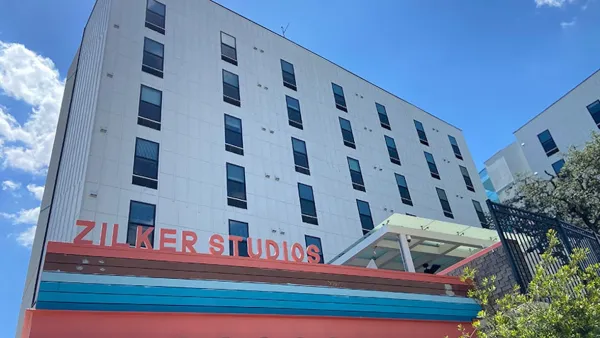Elizabeth City, North Carolina, will host a 204-megawatt wind energy facility—the first in a region known for steady coastal breezes. The project is a collaboration of European-based Iberdrola Renewables, LLC, and Seattle-based Amazon.
The $600 million project includes 102 turbines on 22,000 acres, to be built by Spanish developer Iberdrola Renewables, LLC. It will generate enough electricity to power about 60,000 homes, though the electricity will not be used locally. Iberdrola has partnered with Seattle-based Amazon as its sole customer, and the project will help support the retail giant's cloud-computing division, Amazon Web Services. Power from the Elizabeth City project will be sent to regional transmission lines, feeding Amazon’s data centers in Virginia and Ohio.
Currently there are no commercial wind energy farms in a region of nine southeast states, according to data from the American Wind Energy Association, an industry trade group. Part of the reason the southeast has been passed over by the wind energy industry is because the winds were not thought to be strong enough. But newer designs allow for taller turbines with bigger blades, which are able to capture stronger breezes and could help turn the industry’s attention toward the region for further exploration.

Wind energy also faces political challenges in the southeast, and the success of Iberdrola and Amazon could create smoother sailing for future projects. North Carolina in particular is considered to have some of region’s best winds, but proposals in the past have been pushed out due to opposition from tourism groups, interference with military flight paths, and potential harm to wildlife.
FULL STORY: South getting its first big wind farm soon

Planetizen Federal Action Tracker
A weekly monitor of how Trump’s orders and actions are impacting planners and planning in America.

Chicago’s Ghost Rails
Just beneath the surface of the modern city lie the remnants of its expansive early 20th-century streetcar system.

Amtrak Cutting Jobs, Funding to High-Speed Rail
The agency plans to cut 10 percent of its workforce and has confirmed it will not fund new high-speed rail projects.

Ohio Forces Data Centers to Prepay for Power
Utilities are calling on states to hold data center operators responsible for new energy demands to prevent leaving consumers on the hook for their bills.

MARTA CEO Steps Down Amid Citizenship Concerns
MARTA’s board announced Thursday that its chief, who is from Canada, is resigning due to questions about his immigration status.

Silicon Valley ‘Bike Superhighway’ Awarded $14M State Grant
A Caltrans grant brings the 10-mile Central Bikeway project connecting Santa Clara and East San Jose closer to fruition.
Urban Design for Planners 1: Software Tools
This six-course series explores essential urban design concepts using open source software and equips planners with the tools they need to participate fully in the urban design process.
Planning for Universal Design
Learn the tools for implementing Universal Design in planning regulations.
Caltrans
City of Fort Worth
Mpact (founded as Rail~Volution)
City of Camden Redevelopment Agency
City of Astoria
City of Portland
City of Laramie





























